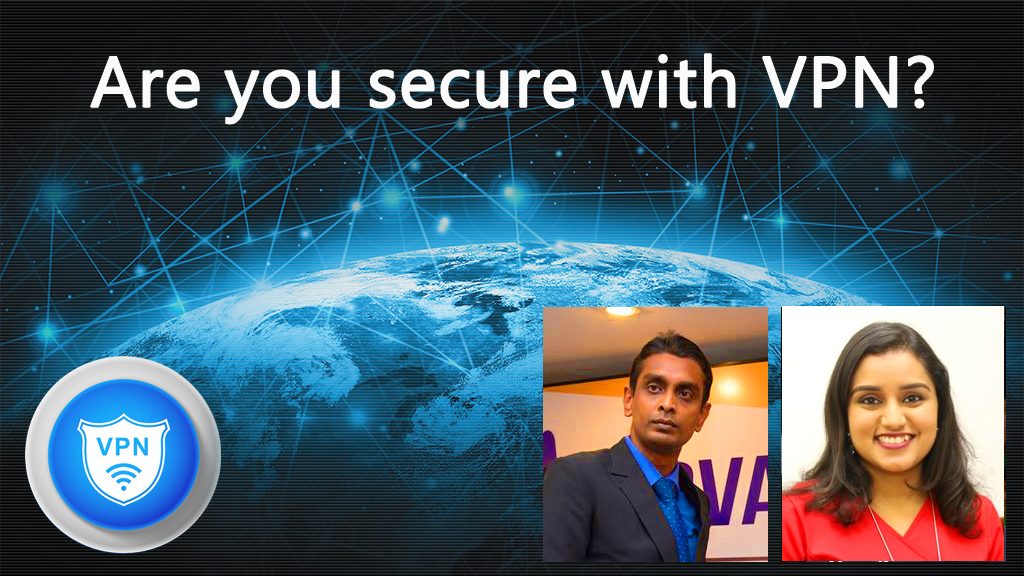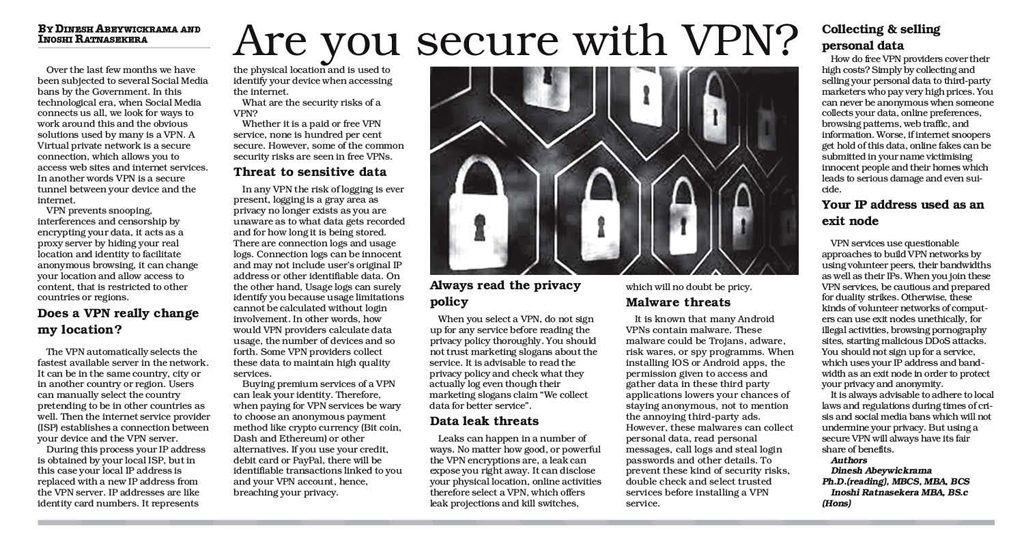
Table of Content
- Are you secure with VPN?
- Does a VPN really change my location?
- What are the security risks of a VPN?
Are you secure with VPN?

Over the last few months we have been subjected to several social media bans by the government. In this technological era, when social media connects us all, we look for ways to work around this and the obvious solutions used by many is a VPN. A Virtual private network is a secure connection, which allows you to access web sites and internet services. In another words VPN is a secure tunnel between your device and the internet.
VPN prevents snooping, interferences and censorship by encrypting your data, it acts as a proxy server by hiding your real location and identity to facilitate anonymous browsing, it can change your location and allow access to content, that is restricted to other countries or regions.
Does a VPN really change my location?
The VPN automatically selects the fastest available server in the network. It can be in the same country, city or in another country or region. Users can manually select the country pretending to be in other counties as well. Then the internet service provider (ISP) establishes a connection between your device and the VPN server.
During this process your IP address is obtained by your local ISP, but in this case your local IP address is replaced with a new IP address from the VPN server. IP addresses are like identity card numbers. It represents the physical location and is used to identify your device when accessing the internet.
What are the security risks of a VPN?
Whether it is a paid or free VPN service, none is hundred percent secure. However some of the common security risks are seen in free VPNs.
1. Threat to sensitive data
In any VPN the risk of logging is ever present, logging is a gray area as privacy no longer exists as you are unaware as to what data gets recorded and for how long it is being stored. There are connection logs and usage logs. Connection logs, can be innocent and may not include user’s original IP address or other identifiable data. On the other hand, Usage logs can surely identify you because usage limitations cannot be calculated without login involvement. In another words, how would VPN providers calculate data usage, the number of devices etc.? Some VPN providers collect these data to maintain high quality services.
Buying premium services of a VPN, can leak your identity. Therefore, when paying for VPN services be careful to choose an anonymous payment method like crypto currency (Bit coin, Dash and Ethereum) or other alternatives. If you use your credit, debit card or PayPal, there will be identifiable transactions linked to you and your VPN account, hence breaching your privacy.
2. Always read the privacy policy
When you select a VPN, do not sign up for any service before reading the privacy policy thoroughly. You should not trust marketing slogans about the service. It is advisable to read the privacy policy and check what they actually log even though their marketing slogans claim “We collect data for better service”.
3. Data leak threats
Leaks can happen in number of ways. No matter how good, or powerful the VPN encryptions are a leak can expose you right away. It can disclose your physical location, online activities, therefore select a VPN, which offers leak projections and kill switches, which will no doubt be pricy.
4. Malware threats
It is known that many Android VPNs contain malware. These malware could be Trojans, adware, risk wares, or spy programs. When installing IOS or Android apps, the permission given to access and gather data in these third party applications lowers your chances of staying anonymous, not to mention the annoying third-party ads. However, these malwares can collect personal data, read personal messages, call logs and steal login passwords and other details. To prevent these kind of security risks, double check and select trusted services before installing a VPN service.
5. Collecting & selling personal data
How do free VPN providers cover their high costs? Simply by collecting and selling your personal data to third-party marketers who pay very high prices. You can never be anonymous when someone collects your data, online preferences, browsing patterns, web traffic, and information Worse, if internet snoopers get hold of this data, online fakes can be submitted in your name victimizing innocent people and their homes which leads to serious damages and even suicide.
6. Your IP address used as an exit node
VPN services use questionable approaches to build VPN networks by using volunteer peers, their bandwidths as well as their IPs. When you join these VPN services, be cautious and prepared for duality strikes. Otherwise, these kind of volunteer networks of computers, can use exit nodes unethically, for illegal activities, browsing pornography sites, starting malicious DDoS attacks. You should not sign up for a service, which uses your IP address and bandwidth as an exit node in order to protect your privacy and anonymity.
It is always advisable to adhere to local laws and regulations during times of crisis and social media bans which will not undermine your privacy. But using a secure VPN will always have it fair share of benefits.
Dinesh Abeywickrama Ph.D.(reading), MBCS, MBA, BCS
Inoshi Ratnasekera MBA, BS.c (Hons)
Follow me to get latest Updates
Facebook https://www.facebook.com/Samuraidinesh
Twitter https://twitter.com/dineshabeywick
Instagram https://www.instagram.com/samuraidinesh/
LinkedIn https://lk.linkedin.com/in/samuraidinesh
References
- Alexander, S.G., 2018. What is a VPN? [Online] Available at: https://www.globalknowledge.com/blog/2018/11/01/the-morris-worm-turns-25/ [Accessed 01 July 2019].
- Symanovich, S., 2018. What is a VPN? [Online] Available at: https://www.globalknowledge.com/blog/2018/11/01/the-morris-worm-turns-25/ [Accessed 01 July 2019].
